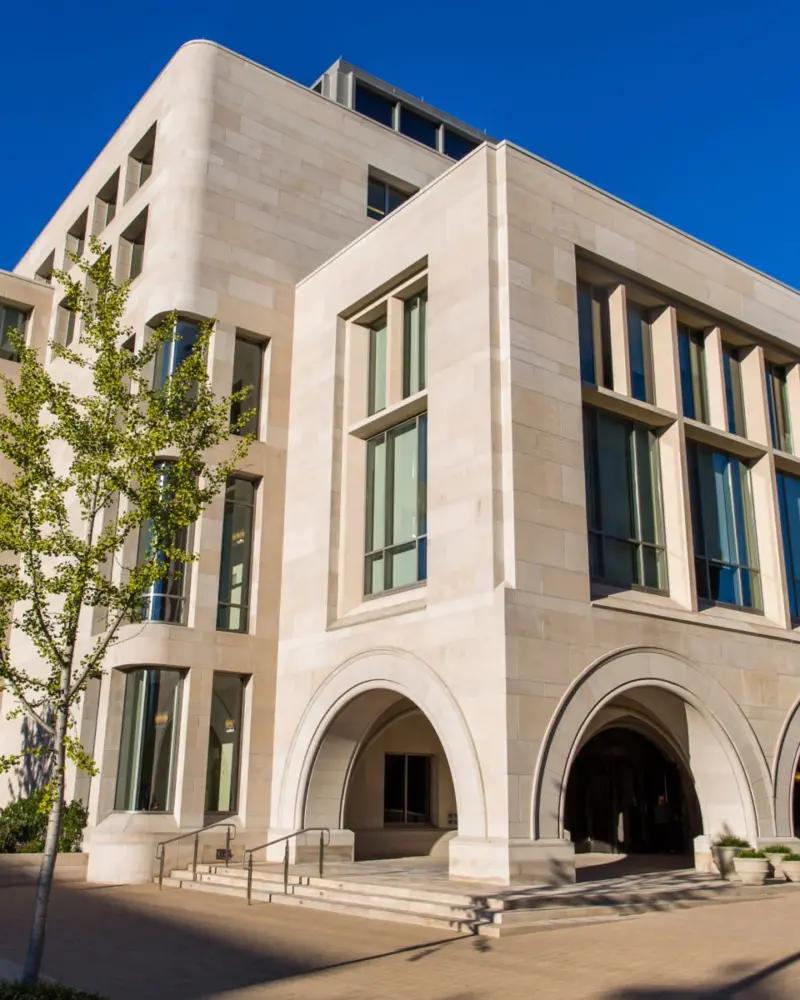Excel in the evolving digital asset markets.
The Evolving Role of Digital Assets in the Global Financial System is a four-day course that will provide participants with a comprehensive understanding of blockchain technology and digital assets, the regulatory framework for digital assets, and ongoing policy debates and reforms.
Delivered by distinguished academics and practitioners—including Bill Hinman, former Director of the Division of Corporation Finance at the U.S. SEC; Howell Jackson and Hal Scott of Harvard Law School; Timothy Massad, former Chair of the U.S. CFTC; and Tim Roughgarden of Columbia University—this in-depth in-person course will empower attendees to excel as participants in and regulators of digital asset markets.
In addition to the esteemed teaching team, participants will also learn from peer digital asset market participants and major financial institutions, government officials in a robust dialogue where participants learn from their peers’ experiences in other sectors and countries.
This program is offered jointly by Harvard Law School Executive Education, the Program on International Financial Systems, and the Harvard Kennedy School’s Digital Assets Policy Project.
-
PROGRAM GOALS
This immersive program will position participants to advance their careers as stakeholders in and supervisors of digital asset ecosystems by helping them build a deep understanding of:
- Blockchain technology and distributed ledgers
- The role of digital assets in the global financial system
- Legal and regulatory frameworks applicable to digital assets in key jurisdictions
- Recent innovations in the payment system, such as stablecoins and central bank digital currencies
- Principles for sound financial policy and regulation of digital assets
Upon successfully completing the course, participants earn a Certificate of Completion from the Program on International Financial Systems and Harvard Law School Executive Education.
-
CURRICULUM
The course will feature lectures, moderated discussions, case studies, and classroom conversations on the topics below:
- Blockchain Technology and the Future Rails of Finance
- Introduction to Blockchain Technology and Protocols
- Types of Protocols (e.g., Centralized versus Decentralized, Permissioned versus Permissionless, Public versus Private, Proof of Work versus Proof of Stake)
- The Economics of Crypto
- Use Cases in the Financial Sector: Payments and Settlement; Asset Tokenization; and Decentralized Finance and Autonomous Organizations
- Threshold Legal and Regulatory Issues
- The Regulatory Challenges of Tokenization and Protocols
- Crypto as a Payment Mechanism
- Crypto as an Asset Class
- Regulatory Approaches – Trading Market Structure
- Overview of Bitcoin, Ether, and Trading Platforms
- Classifying Assets as Securities, Commodities, Investment Products, etc.
- A Global Survey of Regulatory Approaches to Crypto-Assets and Trading Platforms (Issuance, Distribution, Trading, and Service Providers)
- Ancillary Services: Lending, Staking, and Custody
- Regulatory Approaches – Payments Innovation
- Key Market Dynamics (the legacy payment system and potential impact of stablecoins, tokenized deposits, and CBDCs)
- Regulating Stablecoins and their Relationship to Banking Regulation
- Central Bank Digital Currencies
- Illicit Finance and National Security
-
PARTICIPANTS
This program is designed for a global audience of financial and legal professionals in the public and private sector seeking to advance their careers in digital assets. The course will especially benefit financial professionals at both established financial institutions and emerging fintech firms, lawyers at law firms or in-house legal departments, and financial policymakers, supervisors, and regulators.
We recommend participants consider attending the program as part of a pair or small team from their firm or organization. Attending with another provides accountability and opportunity for greater impact when participants return to their organization.
Not sure if this program is right for you? Ask us.
-
FACULTY
-
ADMISSIONS
The application includes two short answer questions:
- Please describe why this in-person course is relevant to you.
- Please describe what insights and experiences you would be able to contribute to Q&A sessions and course discussions that would benefit other participants.
Visit the application for more information on the process.
-
TRAVEL AND ACCOMMODATIONS
Participants are responsible for their own travel and accommodations.
There are several hotels in Harvard Square within walking distance from the Harvard Law School campus:
Sheraton Commander
The Charles Hotel
Prentiss House by Thatch
Hotel Veritas
You may also be interested in:
